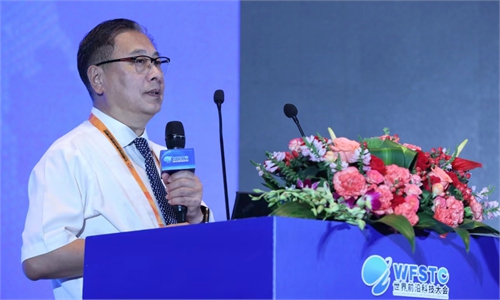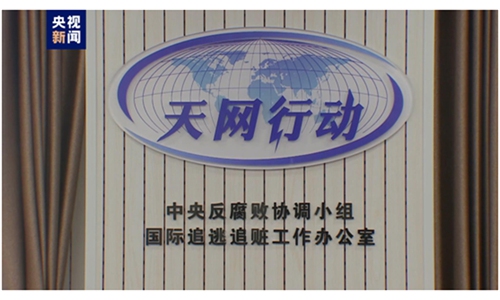
Photo: VCG
As part of a recent nationwide anti-corruption campaign, the provincial discipline inspection commission and supervisory commission of Central China's Hunan Province invited the spouses of 140 senior officials from provincial government agencies, state-owned enterprises and universities to an anti-corruption themed event.
Attendees were introduced to corruption cases from recent years. Some of them engaged in "nepotism" and "family corruption," encouraging their sons to seek favors from other officials' children; some opened family businesses through corruption; some focused solely on money, helping their relatives to make money illegally; some were pushed into corruption by family ties, leading the whole family into an abyss. These examples of corrupt family traditions serve as a warning.
In March, the website of the Central Commission for Discipline Inspection and the National Supervisory Commission authorized the release of a report stating that 72 people were under investigation, and 28 people received disciplinary punishment. In March, a total of 6,715 cases of violations of the eight-point decision on improving Party and government conduct were investigated nationwide, with 9,065 individuals receiving criticism and education, including 6,591 individuals receiving disciplinary punishment.
"I wrote a letter to my child on his birthday, in which I said, the deepest pain for a mother is failing to uphold principles and lacking self-discipline." In the exhibition hall, a video showing Tang Jun, former secretary of the Party committee of Xintian county, tearfully confessing her mistakes served as a profound lesson.
"Some of the 'protagonists' in these cases are familiar to us, some were even former colleagues of our husbands. It is a lack of strict parenting and proper family traditions that led them astray into corruption," noted one attendee. Everyone at the event expressed that upright family tradition is the cornerstone of family happiness, and as family members, they must establish a strong ethical red line, constantly remind their spouses to respect, fear, and abide by the rules, and educate and manage their children and relatives well.
Anti-corruption experts say that including officials' family members in anti-corruption education can prevent corruption loopholes from being opened and also serve a supervisory role.
Many cases of corruption among officials were initially due to their family members being bribed, while the officials themselves may be unaware. Furthermore, if the spouses of officials can strengthen supervision and management of officials' abnormal behaviors in daily life, it can also enhance the warning effect for restraining officials' behavior, Zhuang Deshui, deputy director of the Research Center for Government Integrity-Building at Peking University, told the Global Times on Monday.
"Family tradition is like a 'firewall.' It is a line of defense for Party members, officials, and their families to resist temptation. If there is even a small hole in this wall, the 'small flames' that come through could potentially engulf the whole family," said Zhu Fan, a representative of family members, noting that this wall must be fortified, and a "clean and honest line of defense" must be upheld in order for a family to thrive.
"Family tradition is an important manifestation of the work style of leading officials, it is an important cornerstone for the prosperity of family inheritance, and it is a good remedy for the fight against corruption," Wang Shuangquan, a member of the Hunan provincial Party committee, secretary of the provincial discipline inspection commission, and director of the provincial supervision commission, vividly narrated the significance and profound connotation of establishing upright family traditions.
According to local officials, Hunan Province attaches great importance to the construction of family traditions for leading cadres, taking it as a fundamental project to deepen the comprehensive and strict governance of the Party, and as an important aspect included in the assessment of building a clean Hunan and constructing a clean culture.
In practice, Hunan regards the construction of family traditions for officials as a key focus in heart-to-heart talks, supervision and inspection, paying attention to digging deep into typical cases of poor family education and traditions.
The curtailing of corruption by discipline inspection and other procuratorial organs as well as the media is limited, as experts put it. Family members are directly related to integrity efforts. The key to integrity education is to enhance the officials' own integrity awareness, and to encourage family members to remind these officials at the appropriate time and reduce the occurrence of corruption problems, Zhuang said.



